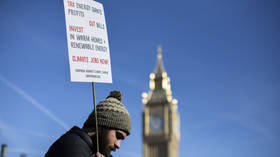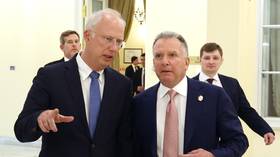UK becoming ‘emerging market country’ – Saxo Bank

The UK is “more and more looking like an emerging market country,” Saxo Bank Head of Macro Analysis Christopher Dembik said in a research note on Monday, CNBC reports. The analyst pointed to political instability, trade disruptions, an energy crisis, and skyrocketing inflation as major indicators behind this.
“What Brexit has not done by itself, Brexit coupled with Covid and high inflation have succeeded in doing,” Dembik wrote. “The UK economy is crushed.”
According to him, the only thing prohibiting it from being characterized as an emerging market country is a currency crisis, with the British pound sterling holding firm in spite of all of the macroeconomic headwinds.
“It only dropped 0.70% against the euro and 1.50% against the US dollar over the past week,” he said. “Our bet: After surviving Brexit uncertainty, we don’t see what could push the sterling pound into a free fall.”
However, the Saxo analyst also suggested all signs point to more pain ahead for the country’s economy. He cited new car registrations – which are often perceived as a leading indicator of the health of the British economy– which reportedly plunged by 14% year-on-year last month to 1.528 million from 1.835 million in July 2021.
“This is the lowest level since the end of the 1970s,” Denbik noted, adding, “The recession will be long and deep. There won’t be an easy escape. This is most worrying, in our view. The Bank of England assesses the slump will last with GDP still 1.75% below today’s levels in mid-2025.”
The Bank of England warned last week that the UK economy will enter its longest recession since the Great Financial Crisis later this year, with economic output declining each quarter from the fourth quarter of 2022 through the fourth quarter of 2023. Soaring natural gas prices are likely to drive consumer price inflation to 13.3% in October, from 9.4% in June, the bank projected.
For more stories on economy & finance visit RT's business section












